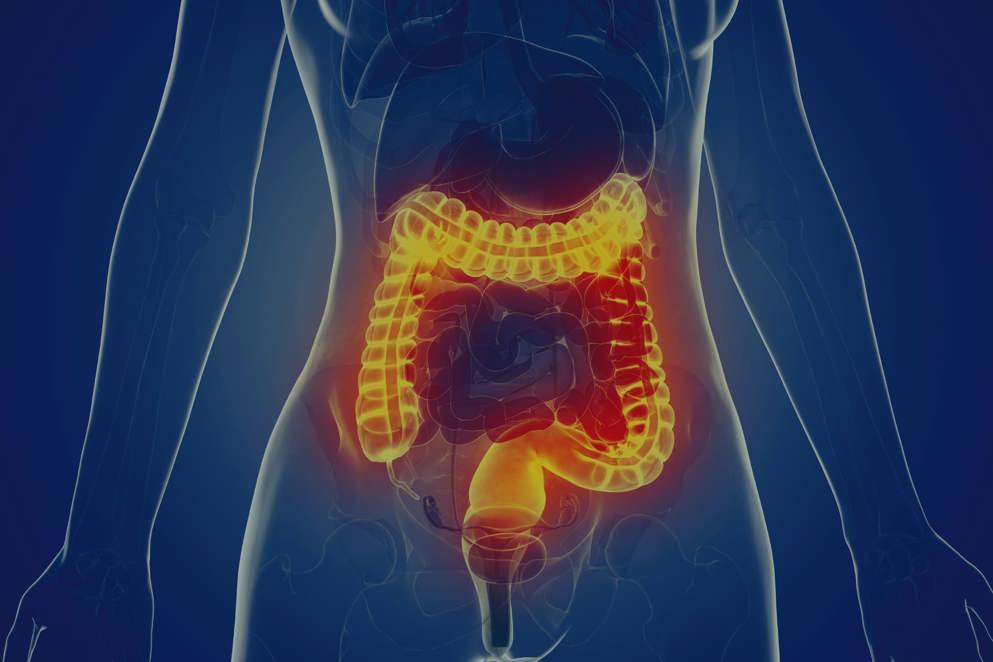
Welcome
Ulcerative colitis (UC) is an inflammatory bowel disease characterised by chronic inflammation in the colon and rectum. It is associated with substantial morbidity, work disability and reduced quality of life1-4. For people with UC, debilitating gastrointestinal symptoms and faecal incontinence have an adverse impact on many aspects of their daily life, as well as their psychological health, and social and sexual lives1.
In this Learning Zone, explore:
- the global prevalence, burden and pathophysiology of UC
- key unmet needs that impact UC management in practice
- recommended treatment goals and management of UC, according to European and US guidelines
- current and investigational treatments for UC, and how they relate to disease pathophysiology
In the expert opinion section, explore video interviews to gain insights into current challenges in UC management, particularly relating to moderate-to-severe and refractory UC. Review key considerations for integrating recently-approved UC treatments into practice.
Roundtable: UC at UEGW 2023
Experts discuss the latest on ulcerative colitis guidelines, treatments and integration into clinical practice after UEGW 2023.
Ulcerative colitis overview
Discover the burden of UC and unmet needs in UC management
Ulcerative colitis treatment
Why is timely decision-making important in UC? Find out more
Treatment decision-making for ulcerative colitis
Why is timely decision-making important in UC? Find out more
Expert opinion on ulcerative colitis
Expert insights into key challenges in UC management
About the Ulcerative colitis Learning Zone
After consuming this content, you will be able to:
- Recall the unmet needs of moderate-to-severe and refractory UC
- Identify current recommended treatment options in US/EU UC guidelines
- State evidence for recently approved treatment strategies in UC
- State key considerations for integration of recently approved UC treatments into clinical practice
This Learning Zone is intended for a global audience of gastroenterology, hepatology, immunology and infectious disease specialists, and general practitioners.
Meet the experts
The following experts provided insights into the management of UC throughout this Learning Zone.
Professor Stephen Hanauer
Stephen B. Hanauer is a Professor of Medicine (Gastroenterology and Hepatology) and Medical Director of the Digestive Health Center at Northwestern University’s Feinberg School of Medicine in Illinois, USA. He is a board-certified internist and gastroenterologist, internationally recognised as an expert on the treatment of inflammatory bowel disease (IBD). Professor Hanauer is a Master and past President of the American College of Gastroenterology (ACG) and the former Chair of the American Gastroenterological Association's Inflammation, Immunology, and IBD Section as well as the Clinical Practice chair. He has served as a member of the U.S. FDA Gastrointestinal Drugs Advisory Committee since 1987. Professor Hanauer has expertise in designing and leading clinical studies for IBD-related therapies and has acted as a clinical investigator and/or advisor to pharmaceutical companies in the development of many investigational IBD treatments. Professor Hanauer has authored over 475 peer-reviewed journal articles and numerous books and book chapters, abstracts, monographs and editorials.
Disclosures: Professor Hanauer has been a consultant and involved in clinical research with AbbVie, Allergan, Amgen, Celgene, Genentech, GSK, Janssen, Lilly, Novartis, Pfizer, Prometheus, Receptos, Takeda, and UCB Pharma. He has been involved in drug safety monitoring boards for Arena, Boehringer Ingelheim, Bristol Myers Squibb, Gossamer, Prometheus, and Protagonist. Professor Hanauer has also been a speaker for AbbVie, Janssen, Pfizer, and Takeda. He has also been a consultant for AstraZeneca, Cosmos, Catalys Pacific, Covance, Merck, Progenity, Salix, Samsung Bioepis, Seres Therapeutics, Sorriso, TLL Pharma, and VHsquared.
Dr Tim Raine
Dr Tim Raine leads the IBD clinical service and the IBD trials unit at Cambridge University Hospitals, UK. Dr Raine is the chair of the European Crohn’s and Colitis Organisation (ECCO) guidelines committee and is a lead author on several ECCO guidelines. He also serves on the lower gastrointestinal (GI) section of the UEG Scientific Committee. Dr Raine is chief investigator of several clinical trials and an honorary faculty member of the Wellcome Trust Sanger Centre, UK. His research focuses on the regulation of the gastrointestinal immune system, and is funded by the Wellcome Trust, CCFA, Crohn’s and Colitis UK, OpenTargets and the National Institute for Health Research.
Disclosures: Dr Raine has received research/educational grants and/or speaker/consultation fees from AbbVie, Arena, Aslan, AstraZeneca, Boehringer Ingelheim, Bristol Myers Squibb, Celgene, Eli Lilly, Ferring, Galapagos, Gilead, GSK, Heptares, LabGenius, Janssen, Mylan, MSD, Novartis, Pfizer, Roche, Sandoz, Takeda, UCB, and Xap therapeutics.
References
- Armuzzi A, Liguori G. Quality of life in patients with moderate to severe ulcerative colitis and the impact of treatment: A narrative review. Dig Liver Dis. 2021;53(7):803-808.
- Fumery M, Singh S, Dulai PS, Gower-Rousseau C, Peyrin-Biroulet L, Sandborn WJ. Natural History of Adult Ulcerative Colitis in Population-based Cohorts: A Systematic Review. Clin Gastroenterol Hepatol. 2018;16(3):343-356.e343.
- Kobayashi T, Siegmund B, Le Berre C, Wei SC, Ferrante M, Shen B, et al. Ulcerative colitis. Nature Reviews Disease Primers. 2020;6(1):74.
- Zurba Y, Gros B, Shehab M. Exploring the Pipeline of Novel Therapies for Inflammatory Bowel Disease; State of the Art Review. Biomedicines. 2023;11(3).
of interest
are looking at
saved
next event




